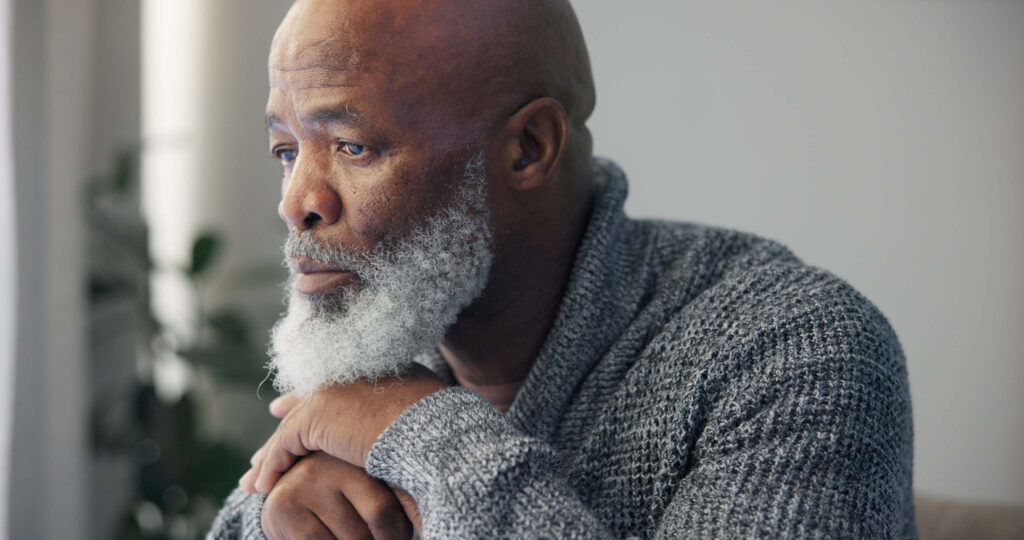Some truths about aging are better left unspoken—but they catch up with everyone eventually.

Getting older comes with plenty of wisdom, freedom, and experience, but it also brings along some harsh realities that most people would rather ignore. While society loves to paint a rosy picture of retirement and golden years filled with leisure, there are aspects of aging that aren’t nearly as glamorous. Some challenges sneak up slowly, while others hit all at once, making it easier to pretend they don’t exist.
Whether it’s physical changes, shifting relationships, or unexpected emotional struggles, aging forces people to confront things they never thought they’d have to deal with. While some of these realities can be managed with preparation and the right mindset, others require a little more acceptance.
Here are some unspoken truths about aging that many seniors would rather not think about—but will eventually have to face.
1. Losing independence happens faster than expected.

Most people assume they’ll stay self-sufficient well into their later years, but the loss of independence can happen suddenly. One bad fall, a minor health issue, or unexpected mobility problems can quickly turn daily tasks into challenges. Driving, cooking, and even dressing independently can become difficult, forcing people to rely on others more than they ever expected, according to Melanie Donahue of Bluemoon Senior Counseling.
This shift isn’t just physical—it’s emotional, too. Losing the ability to do simple things without help can feel frustrating and even humiliating. While some adapt with humor and resilience, others struggle with the realization that their world is getting smaller. Planning ahead with modifications at home and keeping an open mind about assistance can make the transition easier when the time comes.
2. Friendships start disappearing, and making new ones isn’t easy.

It’s not something people talk about often, but aging can be lonely. Friends move away, pass on, or simply grow apart, and suddenly the social circle that once felt solid starts shrinking. Unlike earlier in life, when work, kids, and social outings made friendships effortless, making new connections as a senior can feel like a challenge, as reported by the writers of Second Wind Movement.
The hardest part is that loneliness creeps in gradually. At first, it’s missing a lunch date here or there, then realizing there aren’t as many invitations as before. Staying connected takes more effort, but it’s worth it. Seniors who actively seek out new social opportunities—through clubs, volunteer work, or even online groups—tend to stay happier and healthier.
3. Your body starts working against you in surprising ways.

Everyone expects a few wrinkles and gray hairs, but the real shock comes with the little betrayals of the body. Joints ache for no reason, injuries take twice as long to heal, and everyday movements require more thought, as stated by Dr. Amit Shah. Sleeping through the night? A luxury. Digesting food you’ve eaten your whole life? Suddenly a gamble.
These changes don’t just affect physical comfort—they impact daily routines and even confidence. Adjusting to a body that feels different than the one you’ve known for decades can be frustrating, but staying active and focusing on what still works well can help ease the transition.
4. Your role in the family slowly shifts.

For years, you were the one others depended on. You raised kids, helped with grandkids, and were the go-to person for advice. Then, seemingly overnight, the dynamic flips. Adult children start worrying about you, asking if you’re eating right, handling finances properly, or considering moving somewhere “safer.”
While it’s a sign of love, it can also feel intrusive and frustrating. No one wants to feel like a burden, but this shift in family roles is inevitable. The key is finding ways to maintain independence while gracefully accepting help when it’s truly needed.
5. Technology moves faster than you can keep up with.

Just when you think you’ve mastered one gadget, a newer, supposedly better version comes along and makes you feel technologically ancient again. Phones, apps, online banking, smart home devices—everything evolves at a pace that feels impossible to follow. What used to be simple tasks, like booking a flight or paying a bill, now require navigating endless menus and passwords.
While it’s tempting to ignore the latest tech trends, staying somewhat up-to-date makes life easier. Learning a few basics can help maintain independence, and there’s no shame in asking younger family members for a crash course when needed.
6. People start treating you differently, even if you don’t feel old.

One of the strangest realities of aging is realizing that other people see you as “old” long before you feel that way yourself. Cashiers call you “sweetie,” younger coworkers assume you don’t understand technology, and some people even talk louder as if your hearing suddenly vanished overnight.
It can be frustrating and even offensive at times, but it’s also a reflection of how society views aging. The best way to push back? Stay engaged, active, and prove that age doesn’t define capability.
7. Sleep becomes a nightly battle.

Falling asleep used to be effortless, but aging changes that. Whether it’s frequent trips to the bathroom, random aches, or just a mind that won’t shut off, getting a full night’s sleep becomes more difficult. And the worst part? Even when you do sleep, it doesn’t always feel restful.
Establishing a bedtime routine, limiting caffeine, and making the sleep environment as comfortable as possible can help. But sometimes, accepting that sleep won’t be what it used to be is the only option.
8. Doctor visits become a regular part of life.

In younger years, a trip to the doctor was an occasional inconvenience. Now, medical appointments fill up the calendar. Between routine checkups, specialist visits, and screenings for every possible age-related condition, it feels like healthcare becomes a second job.
Managing health proactively can reduce the stress of endless appointments, but there’s no avoiding the fact that staying on top of medical issues becomes a major part of aging.
9. Your memory isn’t as sharp as it used to be.

Misplacing keys or forgetting a name happens to everyone, but as you get older, those little lapses feel more alarming. While most memory slips are harmless, the fear of cognitive decline looms in the background. People joke about “senior moments,” but deep down, the idea of losing mental sharpness is one of the biggest fears of aging.
Staying mentally active—through reading, puzzles, or learning new skills—helps keep the brain engaged. And sometimes, just accepting that forgetting the occasional name is normal can ease unnecessary worry.
10. The world starts to feel unfamiliar.

Society changes fast, and at some point, it becomes clear that the world is no longer designed for your generation. Trends, music, slang, and even basic social norms shift, making it feel like you’re watching culture from the outside.
It can be frustrating, but staying curious and open to new experiences makes all the difference. Engaging with younger generations and embracing change instead of resisting it can help bridge the gap.
11. You start thinking about mortality more often.

Aging comes with a growing awareness of time. Friends and family members pass away, and suddenly, the concept of mortality isn’t so abstract anymore. It’s not necessarily a fear of death—it’s the realization that time is limited, and the things that truly matter become clearer.
While this reality can be sobering, it also presents an opportunity to live more intentionally. Prioritizing joy, connection, and meaningful experiences ensures that aging isn’t just about what’s lost—it’s about making the most of what remains.
